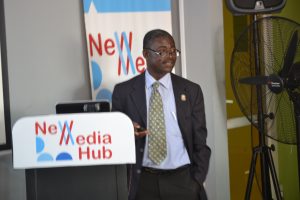“It is about time the government redefined capacity building. If there is actual drilling and we need the technical expertise to do that and you are focusing on logistics and marketing, then we are not doing the right thing,” he said.
Professor Paul Buah-Bassuah said “Most of the institutions are training people for oil and gas marketing and logistics, but we do not need that. Capacity building, over the years, has not been in the direction that we expect, if we are looking at the actual expertise needed to bring out the oil, we are lacking in that direction.”
The Head of Policy at the Africa Center for Energy Policy (ACEP), Dr Ishmael Ackah, in a separate interview said the essence of allocating revenues to capacity building as a priority area had been wasted over the last three years.
“Unfortunately for the first three years of oil production, we decided to throw the concept away. We started allocating monies to Musicians Union of Ghana (MUSIGA), National Disaster Management Organisation (NADMO) and other agencies under capacity building and the essence was quite lost,” he said.
Capacity building is one of the four priority areas under which the government is expected to utilise oil revenue from the Annual Budget Funding Amount (ABFA).
There is, however, no clear definition of what is expected to be classified under the concept and which institutions are supposed to help build the capacity of the people.
The Takoradi- based Enterprise Development Centre (EDC), which is helping to train small and medium enterprises to enable them to take advantage of business opportunities in the oil and gas sector do not get a share of funds allocated to them.
The Project Coordinator, Mr Gameli Kumasi, who confirmed this in an interview on December 29, 2015 said, the activities of the EDC were funded by the Jubilee Partners. They, however, provided commercial and administrative support and not technical training.
More graduates, no employment
There has been increasing calls for the need to develop expertise of Ghanaians to man the sector after the start of oil exploration in commercial quantities.
Developing expertise has however, being focused on logistics, marketing and other support services much to the detriment of the technical expertise needed in the sector.
Many institutions have embraced the idea, and are offering oil and gas related courses, churning out graduates who are largely unemployed.
Dr Ackah, who acknowledged this challenge, said while the local institutions were churning out graduates, people sent under government scholarship to go and study abroad equally come back and add up to the number of jobless oil and gas graduates.
“For the first three years, we gave scholarship under the Ghana Education Trust Fund (GETFund) to 125 people to go and study oil and gas related courses. Most of these people have come back and we cannot absorb them. They have become unemployed people although we have spent so much money on them. They are not even getting internships. We have wasted the first three years of capacity building,” he said.




